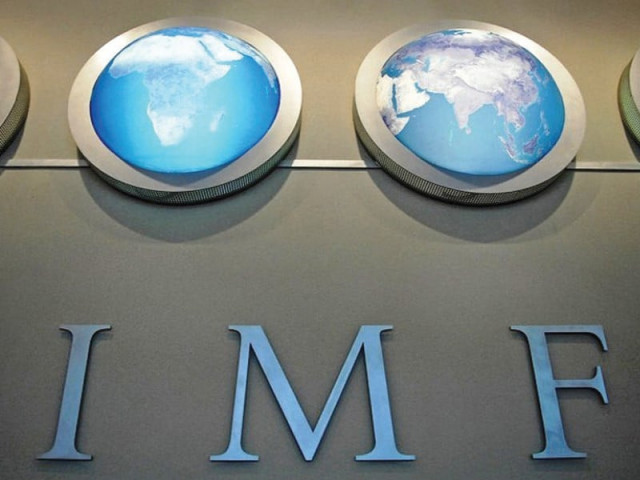Making IMF loan a game changer
With comprehensive reforms, govt can break cycle of dependence on IMF lending

The government is preparing to negotiate a new Extended Fund Facility (EFF) loan from the International Monetary Fund (IMF) and intends to reach a staff-level agreement within the next two to three months.
The IMF asserts that the primary responsibility for selecting, designing and implementing policies lies with borrowing from member countries, not the IMF itself. It is also claimed that the overarching goal of the IMF programme is to set the stage for sustained high-quality growth and poverty reduction.
However, there is a widespread belief that borrowers often feel compelled to sign agreements without much choice and that the longer a country stays in the IMF programme, the more it fails to stand on its own feet.
This time around let’s aim to develop our programme to list our most serious problems and how we intend to address them within the timelines of the IMF programme. By taking ownership of the reform agenda, the government will be compelled to communicate the importance of these changes rather than attributing them solely to the IMF.
Let’s examine the primary economic challenges that continually lead us to seek assistance from the IMF. While opinions may vary, most agree that any comprehensive list would highlight state-owned enterprises (SOEs), the energy sector, trade policy, low tax collection rates and high expenditure relative to our income.
Overcoming our current difficulties will remain elusive unless we proactively tackle these issues.
The staggering magnitude of losses caused by some SOEs to the economy is alarming, and our failure to act borders criminal negligence. Between 2018 and 2022, Rs2.542 trillion was allocated to our SOEs.
The government has identified 25 public sector enterprises for privatisation, however, progress has been slow due to political instability, a sluggish decision-making process and increased judicial activism.
Each day of delay in decision-making is adding to our debts. Taxpayers are footing a daily bill of Rs50 million to keep PIA operational, with total losses reaching Rs713 billion by June 2023.
Pakistan Steel Mills has remained closed since 2015, yet taxpayers have been covering maintenance costs for a decade.
Read ‘Normal country’ doesn’t need IMF
Similarly, energy sector losses remain a pressing concern, with power distribution companies (DISCOs) facing annual losses of approximately Rs376 billion. The energy circular debt has surged to Rs5.5 trillion, escalating by an average of Rs135 billion monthly.
Other critical issues include increasing capacity payments, under-utilisation of power plants, operational inefficiencies and neglect of high-voltage transmission lines. Without radical changes to the governance of the power sector, we risk potential industry shutdowns and imposing unmanageable electricity charges on consumers.
Reforming our trade policy must be critical to our next IMF programme. Although the IMF has previously emphasised trade policy reforms in certain loan programmes, it overlooked the reversal of earlier reforms implemented between 1997 and 2002.
Those reforms contributed to export growth at a rate of 12% annually. However, exports stagnated from 2008 onwards as these reforms were gradually rolled back. Over the last 15 years, we have been losing global export share at 1.45% annually.
It is essential to recognise that our primary trade policy tool is our customs tariff, which exhibits a significant anti-export bias. Without rationalising our customs tariff, achieving export-led growth will remain elusive.
Another critical item for inclusion in the upcoming IMF programme should be the increase in tax collection from the current low level of around 10% of GDP to the developing country average of 15%.
The World Bank estimates that Pakistan only captures half of its tax potential, with nearly two-thirds of GST liabilities and over half of income tax going uncollected. Implementing the FBR digitisation programme could significantly plug these loopholes.
Furthermore, domestic think tanks, the academia and the World Bank have done extensive work on tax and tariff reforms. We need to make use of their work.
In a recent thought-provoking article, Professor Stefan Dercon, former chief economist at the UK’s Department for International Development, sees the current crisis as an opportunity for essential economic reform, emphasising the need for ownership and clear communication of reforms to the public.
He emphasised that the country must decide between maintaining the status quo by relying on external resources or embarking on genuine reform to attract external investment.
He advises against shielding supporters from reform efforts, urging the government to take necessary but challenging steps, such as bringing retailers and large landowners to the tax system and eliminating sectoral policy preferences like protecting automakers.
By including a comprehensive package of reforms in the upcoming extended IMF programme and then sticking to their implementation, the current government has a significant opportunity to break the cycle of dependence on repetitive IMF loans and move towards sustainable development.
Similar reforms have enabled numerous developing countries to lift millions of people out of poverty. There is no reason why we cannot achieve a similar feat if we sincerely and transparently carry out these reforms.
The writer is a Senior Fellow at the Pakistan Institute of Development Economics, having formerly served as Pakistan’s ambassador to the WTO and as FAO’s representative to the United Nations in Geneva
Published in The Express Tribune, May 13th, 2024.
Like Business on Facebook, follow @TribuneBiz on Twitter to stay informed and join in the conversation.


















COMMENTS
Comments are moderated and generally will be posted if they are on-topic and not abusive.
For more information, please see our Comments FAQ